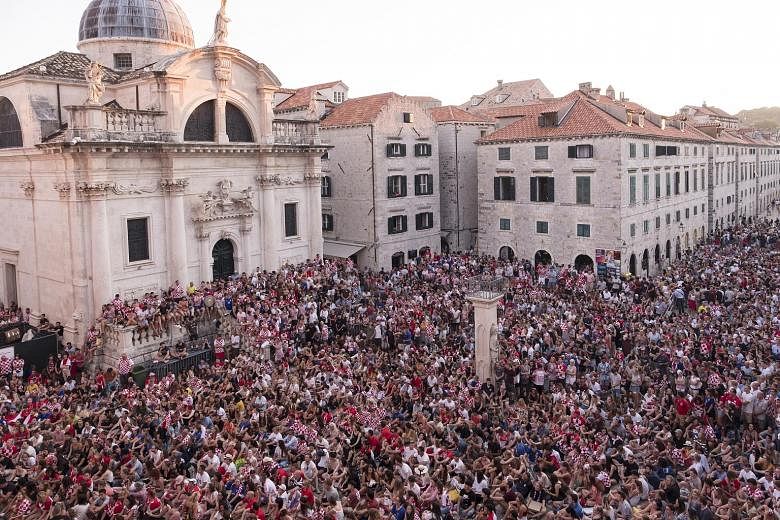WASHINGTON • Three of the four teams that reached the World Cup semi-finals represent Western European societies struggling with immigration and integration.
But the fourth and most surprising consists entirely of local boys from a tiny country.
Croatia's success has different origins than that of its rivals: In that country, soccer is more than a game. It has fed a war, the nation-building that followed - and the post-victory comedown, which, perversely, may have led to its squad's stunning achievement.
A May 1990 riot at Zagreb's Maksimir Stadium that stopped a game between local Dinamo and Red Star from Belgrade was, to many Croatians, the beginning of the war that established their country as a separate state.
The Serbian fans were led into the riot by Zeljko Raznatovic also known as Arkan, the future war criminal; police, considered an instrument of the Serb-led Yugoslav state, intervened too late and focused on the hardcore Dinamo fans - the Bad Blue Boys, as they call themselves. A Dinamo player, Zvonimir Boban, got into the fight to help a fan. His act became a symbol of resistance to Croats.
At another soccer game, between Hajduk Split and Partizan Belgrade, in September 1990, Hajduk's hardcore fans, the Torcida, burned the Yugoslav flag and chanted: "Croatia - independent state".
Franjo Tudjman, the nationalist leader at the head of the independence drive, used the soccer fan organisations' radicalism to drive his message and soccer itself to acquire legitimacy for an increasingly independent Croatia. In October 1990, a game between a selection of Croat players and the US national team was seen as the secessionists' major diplomatic success.
Tudjman centralised soccer governance. To him, soccer was a weapon and a tool for building a national identity for domestic consumption and for a world that was not particularly interested in distinguishing between "former Yugoslav" states. Tudjman died in 1999, but his state-building project was successful enough eventually to get Croatia into the European Union (it acceded in 2013).
Still, the country was and remains no stranger to post-Communist corruption, and in recent years, much of the Croatian soccer story has been about graft.
But indirectly, the corruption in Croatian soccer may have contributed to the current national team's strength. Almost all of its members play for elite European clubs.
Croatia's success lies at the crossroads between professionalism forged in English, German, French, Italian and Spanish leagues. This is a combination that can be fearsome even to the seemingly unbeatable French squad in tomorrow's final.
BLOOMBERG

